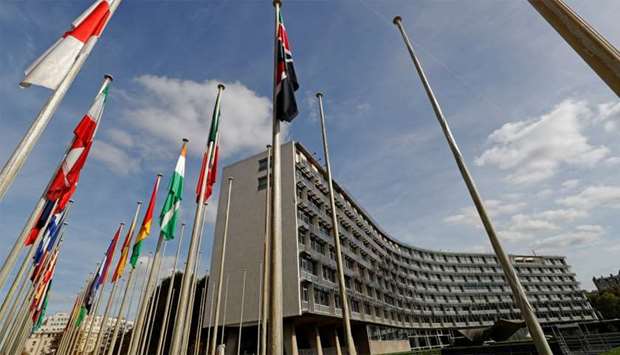The UN Educational, Scientific and Cultural Organisation (Unesco) headquarters in Paris will see on Monday the election for the organisation's 11th director-general, with seven candidates competing to succeed the Bulgarian Irina Bokova.
Fifty-eight members of the Unesco executive board are holding its 202nd session in Paris under the chairmanship of Germany's ambassador to Unesco Michael Worbs to choose the candidate. The person to be nominated by the executive board will be chosen by secret ballot.
Seven candidates -HE Dr Hamad bin Abdulaziz al-Kuwari from Qatar, Polad Bulbuloglu from Azerbaijan, Pham Sanh Chau from Vietnam, Qian Tang from China, Vera El-Khoury Lacoeuilhe from Lebanon, Audrey Azoulay from France and Moushira Khattab from Egypt- are competing for the post.
The winner will be announced on October 13. Then the general conference will elect the executive board at its 39th session on November 10, with the participation of the 195 member states. The new director-general will assume office on November 15.
The Unesco director-general is appointed for a period of four years, and may be appointed for a further term of four years, but shall not be eligible for reappointment for a subsequent term.
The 10th director-general, Irina Bokova, was the first woman to occupy the post after winning the elections of 2009 with 31 votes ahead of the runner-up, Egypt’s former culture minister Farouk Hosni, by three votes.
Unesco is a specialised agency of the United Nations (UN) based in Paris. Its declared purpose is to contribute to peace and security by promoting international collaboration through educational, scientific, and cultural reforms in order to increase universal respect for justice, the rule of law, and human rights along with fundamental freedom proclaimed in the UN Charter. It is the successor of the League of Nations' International Committee on Intellectual Co-operation.
Unesco has 195 member states and 10 associate members. Most of its field offices are "cluster" offices covering three or more countries; national and regional offices also exist.
Unesco pursues its objectives through five major programmes: education, natural sciences, social/human sciences, culture and communication/information. Projects sponsored by Unesco include literacy, technical, and teacher-training programmes, international science programmes, the promotion of independent media and freedom of the press, regional and cultural history projects, the promotion of cultural diversity, translations of world literature, international co-operation agreements on secure the world cultural and natural heritage (World Heritage Sites) and to preserve human rights, and attempts to bridge the worldwide digital divide. It is also a member of the UN Development Group.
The executive board ensures the overall management of Unesco. It prepares the work of the general conference and sees that its decisions are properly carried out. The functions and responsibilities of the Executive Board are derived primarily from the Constitution and from rules or directives laid down by the general conference.
The general conference consists of the representatives of Unesco's member states. It meets every two years, and is attended by member states and associate members, together with observers for non-member states, intergovernmental organisations and non-governmental organisations (NGOs). Each country has one vote, irrespective of its size or the extent of its contribution to the budget. (QNA)

